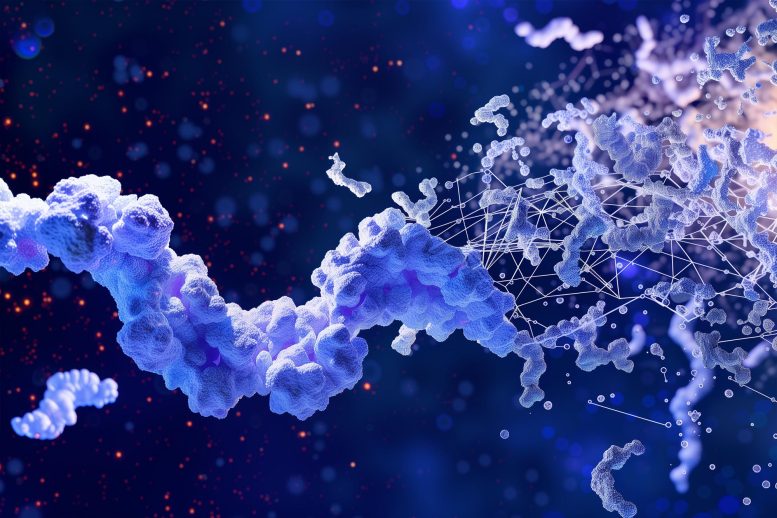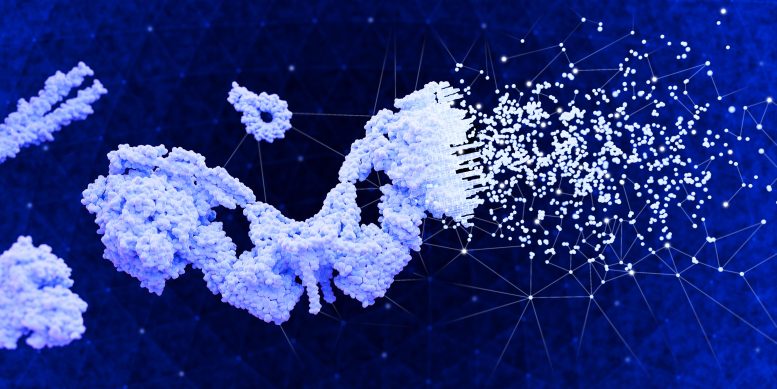
DeepGO-SE, an AI tool created by KAUST researchers, revolutionizes the prediction of unknown protein functions using logical entailment and advanced language models, showing significant potential for scientific research and biotechnological applications. Credit: SciTechDaily.com
KAUST’s DeepGO-SE AI tool excels in predicting functions of unknown proteins, offering promising applications in biotechnology and research.
A new artificial intelligence (AI) tool that draws logical inferences about the function of unknown proteins promises to help scientists unravel the inner workings of the cell.
Developed by KAUST bioinformatics researcher Maxat Kulmanov and colleagues, the tool outperforms existing analytical methods for forecasting protein functions and is even able to analyze proteins with no clear matches in existing datasets.
Advancements in Protein Function Analysis
The model, termed DeepGO-SE, takes advantage of large language models similar to those used by generative AI tools such as Chat-GPT. It then employs logical entailment to draw meaningful conclusions about molecular functions based on general biological principles about the way proteins work.
It essentially empowers computers to logically process outcomes by constructing models of part of the world — in this case, protein function — and inferring the most plausible scenario based on common sense and reasoning about what should happen in these world models.

A new artificial intelligence (AI) tool that draws logical inferences about the function of unknown proteins promises to help scientists unravel the inner workings of the cell. Credit: © 2024 KAUST; Ivan Gromicho
Collaborative Research and Applications
“This method has many applications,” says Robert Hoehndorf, head of the KAUST Bio-Ontology Research Group, who supervised this research, “especially when it is necessary to reason over data and hypotheses generated by a neural network or another SciTechDaily